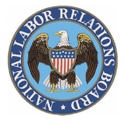
Enacted in midst of the Great Depression, the National Labor Relations Act gave workers an avenue to join together to improve their wages and working conditions. The ability to organize and bargain collectively put more money in the pockets of workers while helping build – and maintain – the middle-class.
Through good times and bad, the Act has offered workers a voice in their workplace and promoted industrial peace. Our country and workplaces have changed over the last eight decades, but the need for the Act has remained a constant.
Today, the law continues to protect employees who seek to improve their working conditions by joining together, with or without a labor union. It protects the union member seeking to improve conditions at their plant just the same as it does the single-mom in a non-union workplace working the night shift who speaks with coworkers about their pay and work hours. And through collective bargaining, unions and employers can resolve their differences and devise solutions to meet the challenges of our ever-changing economy.
While there is little doubt that the workplace will bear little resemblance in 80 years to what we know today, there is even less doubt that workers will deserve and demand a voice in it. As long as there is the NLRA, that voice will be protected.
President Franklin Delano Roosevelt signed the National Labor Relations Act on July 5, 1935, which among other things established a new independent agency tasked with enforcing the Act, the National Labor Relations Board.
Related News
- Railroads Have Short Memories: East Palestine 3 Years Later
- Rail Safety Is Too Important For Corporate Discretion
- CSX ENDS OPERATION REDBLOCK
- New Jersey Train Length, Crew Size Law Awaits Governor’s Signature
- CSX Conductor, Single Mother Devastated in Head-on Collision
- Union Mourns the Loss of Brother Charles Harrison
- FRA Issues Grade-Crossing Safety Advisory
- Amtrak To Give SMART-TD Members Holiday Bonuses
- Value of Unions
- 2026 Railroad Retirement and Unemployment Insurance Tax Changes